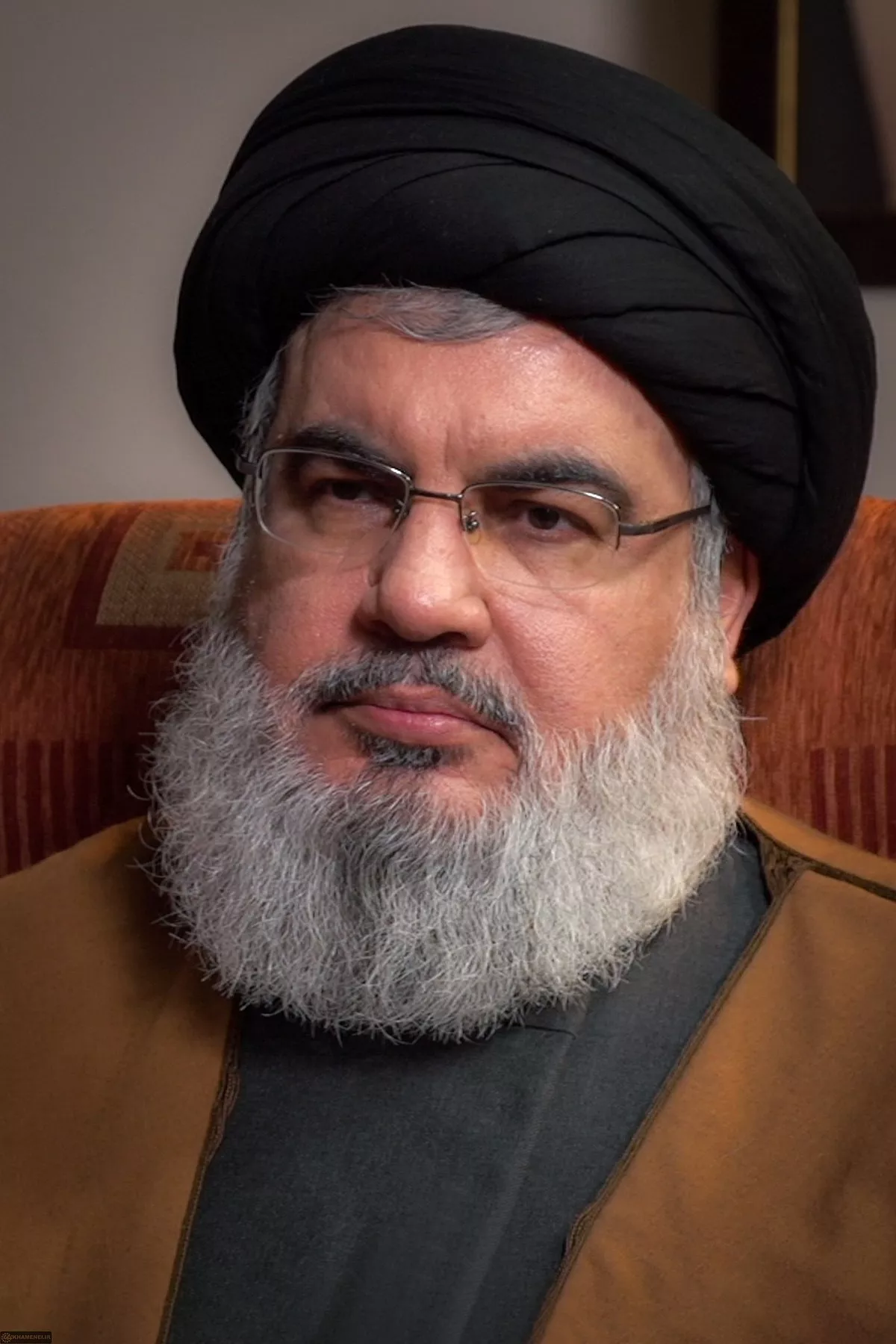 1.
1. Hassan Nasrallah later studied and taught at an Amal school.

 1.
1. Hassan Nasrallah later studied and taught at an Amal school.
In 1982, Hassan Nasrallah served as a founding member of Hezbollah, which was formed to fight the 1982 Israeli invasion of Lebanon, declaring that its confrontation with Israel "should only end when it has been removed from existence",.
Hezbollah's role in ambushing an Israeli border patrol unit, leading up to the 2006 Lebanon War, was subject to criticism, though Hassan Nasrallah projected the end of the war as a Lebanese and Arab victory.
Hassan Nasrallah promoted the "Axis of Resistance", an informal coalition of Iran-backed groups focused on opposing Israel and the United States.
On 27 September 2024, Hassan Nasrallah was killed when the Israeli air force attacked Hezbollah's Headquarters.
Hassan Nasrallah was born the ninth of ten children into a Shia family in Bourj Hammoud, Matn District, on 31 August 1960.
Hassan Nasrallah's father, Abdul Karim Nasrallah, was born in Al-Bazouriyah, a village in Jabal Amel located near Tyre, and worked as a fruit and vegetables seller.
Hassan Nasrallah attended the al-Najah school and later on, a public school in the predominantly Christian neighborhood of Sin el Fil.
In 1975, the outbreak of the Lebanese Civil War forced the family, including Hassan Nasrallah, who was 15 at the time, to move to their ancestral home in Bazourieh, where Hassan Nasrallah completed his secondary education at the public school in Tyre.
Hassan Nasrallah studied at the Shia seminary in the Beqaa Valley town of Baalbek.
In 1976, at 16, Hassan Nasrallah traveled to Iraq where he was admitted into al-Sadr's seminary in Najaf.
Hassan Nasrallah was expelled from Iraq, along with dozens of other Lebanese students in 1978.
Hassan Nasrallah was forced to return to Lebanon in 1979, by that time having completed the first part of his study, as Saddam Hussein was expelling many Shias including the future Iranian supreme leader, Ruhollah Khomeini, and Abbas Musawi.
Back in Lebanon, Hassan Nasrallah studied and taught at the school of Amal's leader Abbas al-Musawi, later being selected as Amal's political delegate in Beqaa, and making him a member of the central political office.
In 1982, Hassan Nasrallah helped organize the group that would become Hezbollah, which was formed initially to repel the 1982 Israeli invasion of Lebanon.
In 1989, Hassan Nasrallah traveled to Qom, Iran, where he furthered his religious studies.
In 1991, Hassan Nasrallah returned to Lebanon and the next year replaced Musawi as Hezbollah's leader after the latter was killed by an Israeli airstrike.
Hassan Nasrallah became the leader of Hezbollah after the Israelis assassinated the previous leader, Musawi, in 1992.
Hassan Nasrallah played a major role in a complex prisoner exchange deal between Israel and Hezbollah in 2004, resulting in hundreds of Palestinian and Lebanese prisoners being freed and many human remains, including that of his son, being returned to Lebanon.
The agreement was described across the Arab world as a magnificent victory for Hezbollah, and Hassan Nasrallah was personally praised for achieving these gains.
Hassan Nasrallah negotiated a Memorandum of Understanding with the Free Patriotic Movement headed by Michel Aoun, the former premier and a Maronite Christian.
On 3 August 2006, Hassan Nasrallah vowed to strike Tel Aviv in retaliation for Israel's bombardment of Lebanon's capital.
Hassan Nasrallah added that Hezbollah forces were inflicting heavy casualties on Israeli ground troops.
On 15 October 2008, Iraqi news source Almalaf, reported that Hassan Nasrallah had been poisoned the previous week, quoting sources in Lebanon, and that he was saved by Iranian doctors who went to Lebanon to treat him.
On 25 October 2008, in an interview with the Hezbollah-owned Al-Manar channel, Hassan Nasrallah denied the assassination attempt, accusing the Israelis and Americans of fabricating the story and considering it as part of the ongoing psychological war against Hezbollah that aimed to imply that the party was suffering from internal disputes and assassination plots.
On 25 May 2013, Hassan Nasrallah announced that Hezbollah is fighting in the Syrian civil war against "Islamist extremists" and "pledged that his group will not allow Syrian militants to control areas that border Lebanon".
Hassan Nasrallah confirmed that Hezbollah was fighting in the strategic Syrian town of Qusair on the same side as the Syrian army.
In July 2014, Hassan Nasrallah's nephew was killed fighting in Syria.
Glass wrote that a Hezbollah spokeswoman, Wafa Hoteit, denied that Hassan Nasrallah made the statement.
Hassan Nasrallah reportedly died from the toxic fumes he inhaled while under the rubble as he allegedly had not sustained physical wounds.
Hassan Nasrallah's body was then buried in Beirut, and Safieddine's in his hometown of Deir Qanoun an-Naher in Southern Lebanon.
American activist Osama Siblani praised Hassan Nasrallah as a "great leader" at a 2024 Gaza war protest rally in Dearborn, Michigan.
Hassan Nasrallah was often seen as an agent of Iranian interests in the region, as his close ties to Tehran led to perceptions that he prioritized Iranian objectives over Lebanese or Arab interests.
Hassan Nasrallah was quoted as saying on receiving the news of his son's death: "I am proud to be the father of one of the martyrs".
Hassan Nasrallah's son's remains were returned to Lebanon in 2004, as part of the prisoner exchange deal between Israel and Hezbollah where Nasrallah played a major role.